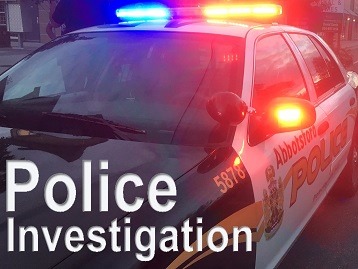Ottawa/Fraser Valley – Every so often, you have to confront the ugly truth. Sexual assault happens. In this case, the RCMP have taken to social media with the urging to survivors of sexual assault, to report the crime.
You are not to blame. You are not alone.
From the RCMP webpage:

The RCMP goal is clear: if you come forward alleging you have been a victim of sexual assault, you will be treated with the same high standard of care regardless of where you report the crime.
What you need to know
- you are not to blame, and you are not alone
- you don’t have to say “no” for what happened to be non-consensual. Body language, silence, intoxication, and other conditions or responses can indicate a lack of consent to sexual activity
- there’s no time limit to report an assault to police. Even if you were assaulted years ago, you can still report it to police. Many survivors do not report right away, and choose to do so later in their lives
- a sexual assault examination kit can be used to gather evidence up to five days after an assault. It can be completed even after you have showered, brushed your hair, or washed your clothes. While the collected evidence may help support or corroborate elements of the crime, a sexual assault investigation can take place even if an examination kit is not used (including if a survivor declines) or used outside the five-day timeframe
- you can withdraw from an investigation at any time, even if you have already provided a statement
Reporting options
If you are injured and require medical attention please call 911 or local emergency services where 911 is not available.
If you were assaulted and would like to speak to police immediately call 911 or local emergency services where 911 is not available.
You can report the assault to police for information purposes only. Many survivors choose to report their assault, and decline to proceed with an investigation. There are many valid reasons for this. For example, some survivors want to be able to help other survivors of the same perpetrator, but do not wish to participate in an investigation. Often, this choice can contribute to the survivor’s healing process.
If you are no longer in immediate danger and wish to report a sexual assault, you can:
- call or go to your local police detachment to make the report
- arrange to meet an investigator in a mutually agreeable location – call your local police detachment to make these arrangements
You are welcome to have a support person accompany you when you make your report. During the process, an investigator may ask to speak with you privately, such as to confirm certain details or to ensure your safety.
The investigation
When you report a sexual assault to police, you will be asked to:
- provide a description of the occurrence (what happened: who, what, when, where, etc.)
- provide a statement that may be audio or video recorded. The recording can take place in the detachment, or in some cases, in a mutually agreed upon location, such as a place of residence. Don’t worry if you feel unable to remember every detail
- clarify details through interview questions
- provide the names of any suspects, witnesses, and bystanders
- provide any physical evidence, such as photos of injuries and clothing
- keep in touch with the investigator/detachment, and to contact them should you remember additional details or information that might help the investigation
If you want your report to be investigated, police will:
- gather evidence, such as a Sexual Assault Examination Kit, statements, witness accounts, etc.
- conduct interviews with you, the subject of complaint as well as possible witnesses
Once again, don’t worry if you are unable to provide all of this information at the initial interview. Often, trauma can impact our ability to recount incidents in chronological order. You can expect the investigator to ask questions, and to help you remember some details. You are always encouraged to follow up with any details you remember after the interview.
Note: In all cases, the survivor can choose to stop participating in the investigation at any time.
Regardless of whether charges are laid, survivors who report assaults can help contribute to police records, which may help to identify repeat offenders.
The court process
If the investigation leads to criminal charges, a disclosure package is prepared by police and prosecutors. The package outlines the incident and is provided to Crown Counsel (prosecutors) and Defence Counsel. The case is then presented in a court setting, in front of a provincial court judge.
You should be aware that the courtroom is open to the public. The subject of complaint, and court personnel such as clerks will also be in the room. Anyone interviewed during the investigation can be called to testify in court to re-tell what they can say regarding their involvement in the incident. You, the subject of complaint, any witnesses, and investigating police officers may also be called to testify regarding the incident and elements of the offence.
Victim services in your area can provide support services to you throughout the court process.
Support services available to you
Support services are available to you, whether or not you decide to report the assault to police. You can contact victim services in your area to receive support. Victim services can also put you in contact with other support groups and community resources such as sexual assault crisis centres, psychological services, or other service providers.













